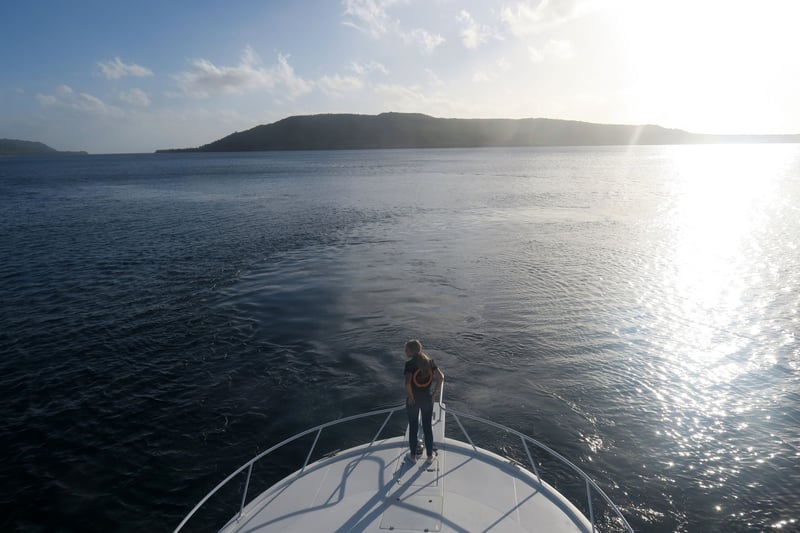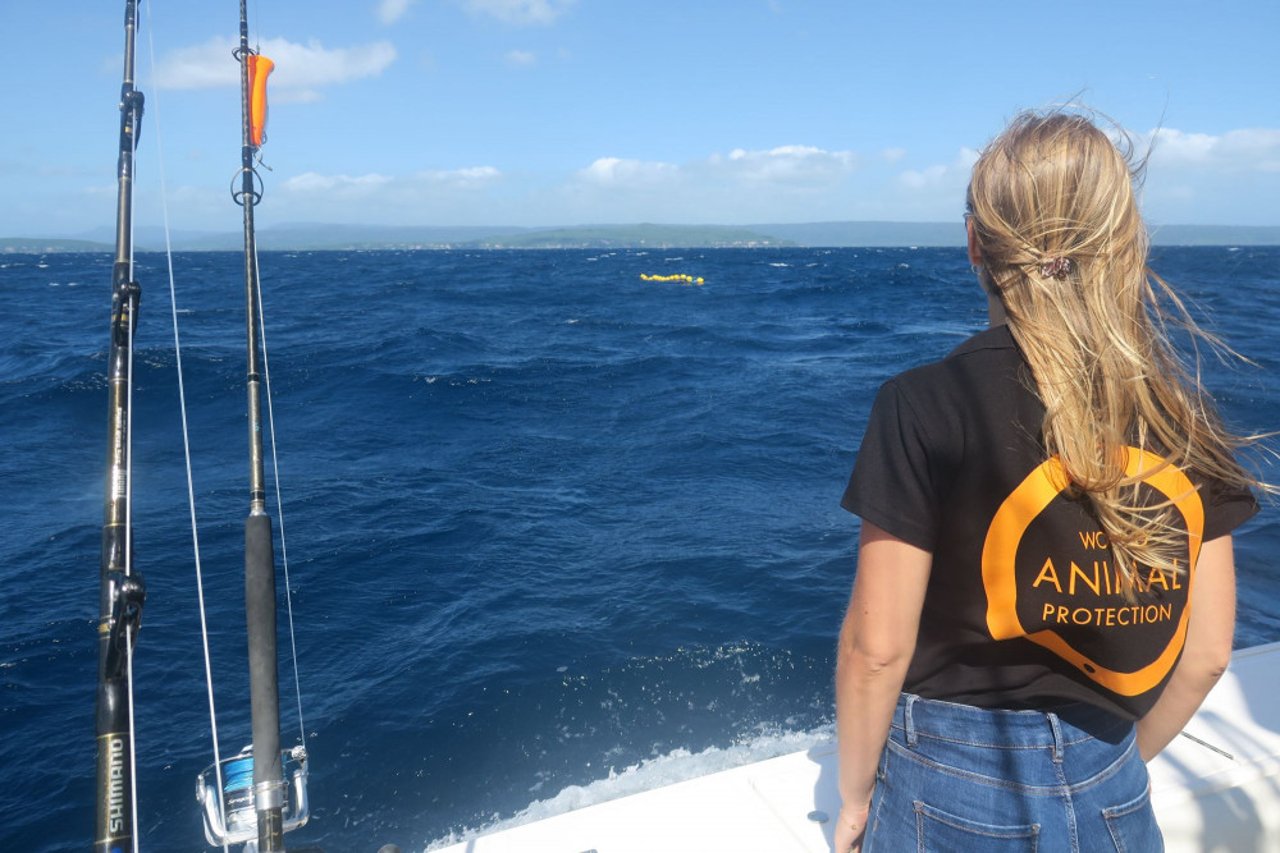
We influence the Vanuatu action plan to help animals
News
Last week, we presented recommendations to tackle ghost gear at the National Marine Litter Policy Conference in Vanuatu.
Ingrid Giskes, Global Head of Campaign – Sea Change, represented World Animal Protection at the National Marine Litter Policy Conference in Vanuatu, last week. The aim was to input into their national action plan to help protect animals from ghost gear.
The event was hosted by the Vanuatu government and the UK government's Centre for Environment, Fisheries and Aquaculture Science (Cefas), with the aim of writing a National Marine Litter plan for Vanuatu, including firm action to address sea-based sources of marine litter, such as ghost gear: lost, abandoned or discarded fishing gear.
Ghost gear is a problem in Vanuatu, affecting wildlife including turtles, damaging reefs and nearshore habitats and becoming a navigational hazard for boats.
Our successful input into the plan
We were invited to the National Marine Litter Policy Conference as experts for the Vanuatu and Solomon Islands Ghost Gear project we are undertaking in Vanuatu with Cefas. The project aims to map ghost gear hotspot (areas where gear is commonly lost or accumulating due to currents), run best practice training and also to remove a large ghost gear net that is tangled in a sensitive coral reef in Port Vila Harbour.
Our input was well received, and the Vanuatu national action plan now includes most of our recommendations, including:
- updating their fisheries management documents with elements from our Global Ghost Gear Initiative (GGGI) Best Practice Framework
- providing training programmes for stakeholders on the appropriate management of fishing gear
- removing ghost nets in hotspot areas.
Our global Sea Change campaign is focused on protecting marine wildlife from the suffering caused by lost, discarded or abandoned fishing gear, known as 'ghost gear'. Find out more about our Sea Change work.
Ghost gear is a problem in Vanuatu, affecting wildlife including turtles, damaging reefs and nearshore habitats and becoming a navigational hazard for boats.
